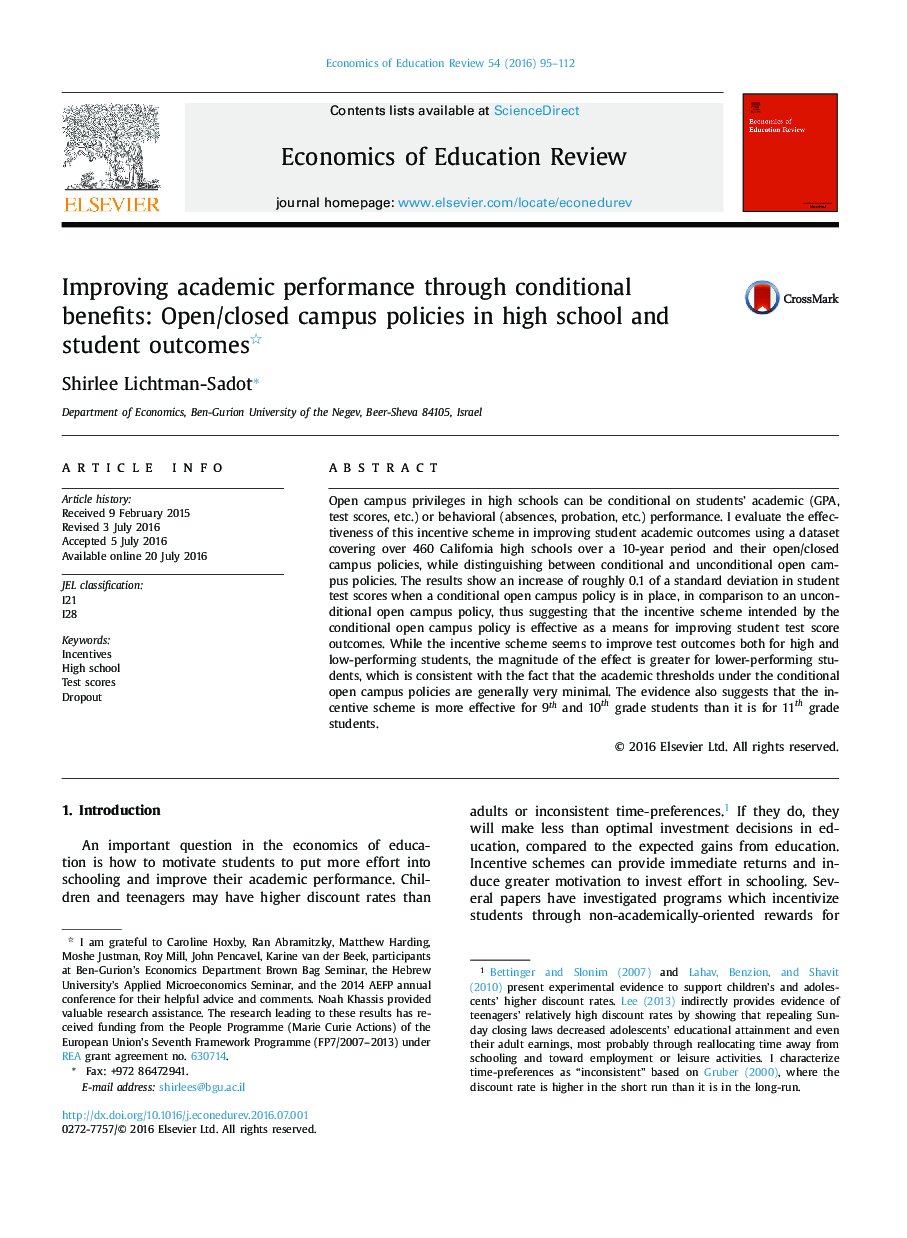| Article ID | Journal | Published Year | Pages | File Type |
|---|---|---|---|---|
| 354238 | Economics of Education Review | 2016 | 18 Pages |
•High school open campus privileges, conditional on academic/behavior requirements are examined.•Student test scores improve when conditional open campus policies are in place.•Thus, the incentive scheme behind the conditional open campus policy is effective.•The effect is larger for low-performing students and lower grade-levels in high school.
Open campus privileges in high schools can be conditional on students’ academic (GPA, test scores, etc.) or behavioral (absences, probation, etc.) performance. I evaluate the effectiveness of this incentive scheme in improving student academic outcomes using a dataset covering over 460 California high schools over a 10-year period and their open/closed campus policies, while distinguishing between conditional and unconditional open campus policies. The results show an increase of roughly 0.1 of a standard deviation in student test scores when a conditional open campus policy is in place, in comparison to an unconditional open campus policy, thus suggesting that the incentive scheme intended by the conditional open campus policy is effective as a means for improving student test score outcomes. While the incentive scheme seems to improve test outcomes both for high and low-performing students, the magnitude of the effect is greater for lower-performing students, which is consistent with the fact that the academic thresholds under the conditional open campus policies are generally very minimal. The evidence also suggests that the incentive scheme is more effective for th99th and th1010th grade students than it is for th1111th grade students.
